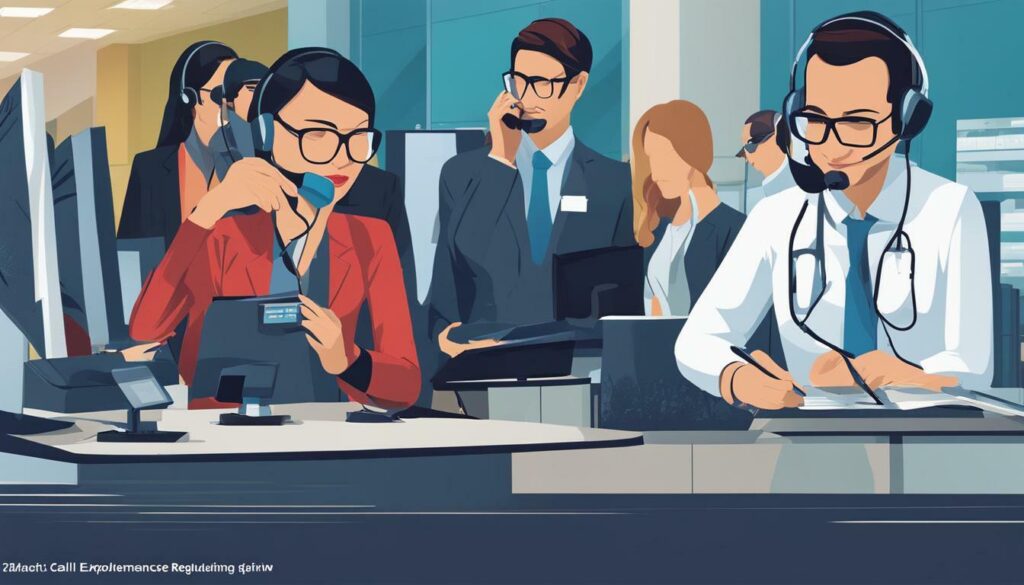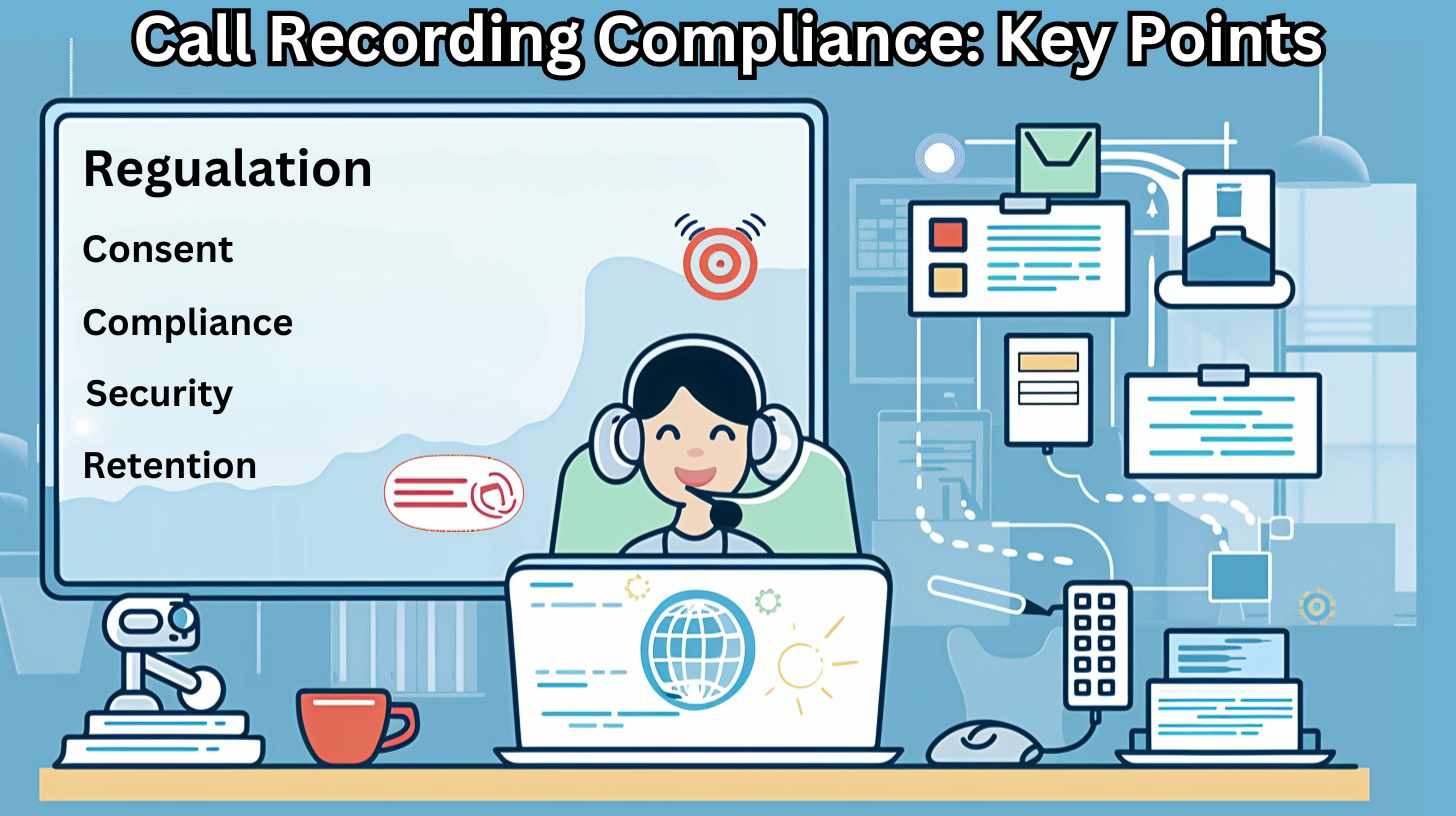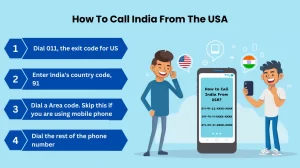Call recording is a valuable tool that enables businesses to enhance customer service, improve employee performance, and ensure compliance with regulatory requirements. However, it is essential to understand the legal and ethical considerations of call recording to avoid potential legal and reputational risks.
The regulatory compliance for call recording refers to the legal standards that must be followed when recording and storing calls. Organizations must comply with various regulations and standards to ensure the privacy of customer data and protect themselves from potential legal consequences.
In this section, we will discuss the importance of regulatory compliance for call recording and the various regulatory compliance for call recording that organizations must adhere to.
- Call recording compliance standards are essential legal requirements that organizations must adhere to when recording and storing calls.
- Non-compliance with Regulatory Compliance For Call Recording can lead to severe legal and reputational risks for businesses.
- Understanding Regulatory Compliance For Call Recording requirements is crucial for building a robust call recording compliance policy.
- Key regulatory compliance for call recording includes the Federal Communications Commission (FCC) regulations and the requirements set forth by industry-specific regulatory bodies.
- Compliance with regulatory compliance for call recording is an ongoing process that requires constant vigilance and adherence to the evolving legal landscape.
Understanding Regulatory Compliance
At My Country Mobile, we understand the importance of regulatory compliance for call recording. Organizations must meet specific requirements to ensure compliance with regulatory compliance for call recording and avoid legal implications of non-compliance. In this section, we will provide a comprehensive understanding of compliance requirements for call recording, call recording legal compliance, and call recording compliance standards.
Compliance requirements for call recording may differ based on industry and location. Organizations must identify and comply with the relevant regulations that apply to their operations. Failure to comply with these regulations can lead to significant legal and financial consequences.
Call recording legal compliance is essential for ensuring the protection of customer data and privacy rights. The regulations aim to ensure that call recording practices adhere to specific standards, such as obtaining customer consent for recording calls and maintaining adequate security measures for recorded data.
Regulatory Compliance For Call Recording provide a framework for organizations to follow when implementing call recording practices. These standards require organizations to maintain appropriate recordkeeping, data protection, and retention policies. Organizations should regularly audit their call recording practices to ensure compliance with the set standards.

Understanding regulatory compliance is essential for organizations to meet the specific requirements for call recording practices. Organizations must invest in the right tools and processes to ensure compliance with regulatory compliance for call recording. In the following sections, we will discuss the key regulations that govern call recording practices, the steps involved in building a call recording compliance policy, and the various technologies available for call recording.
Key Call Recording Regulations
Organizations must adhere to various regulatory compliance for call recording to ensure compliance. These regulations are put in place to protect consumer rights and privacy, prevent unauthorized access to sensitive information, and ensure fair business practices.
One of the most important regulations is set forth by the Federal Communications Commission (FCC). The FCC requires organizations to inform callers that their calls are being recorded, typically through a pre-recorded message at the beginning of the call. Additionally, the FCC mandates that organizations obtain consent from all parties involved in the call before recording can begin.
Other regulatory bodies, such as the Payment Card Industry Data Security Standard (PCI DSS) and the Health Insurance Portability and Accountability Act (HIPAA), have specific requirements for call recording in their respective industries. For example, PCI DSS mandates that credit card information is not recorded during calls, while HIPAA requires that healthcare organizations implement strict access controls to protect sensitive patient information.
Organizations must also be aware of state-level regulatory compliance for call recording, as some states require all parties involved in a call to consent to recording, regardless of the industry or regulatory body.
By understanding and adhering to these regulations, organizations can ensure they are meeting the necessary compliance standards and avoid costly legal action.

Building a Call Recording Compliance Policy
Developing a call recording compliance policy is a critical component of maintaining regulatory compliance. A well-designed policy outlines the specific rules and guidelines that must be followed when recording calls, ensuring that all employees are aware of their responsibilities and the consequences of non-compliance.
When building a call recording compliance policy, it is essential to consider various factors, such as the specific regulations that apply to your industry, the types of calls that are recorded, and the storage and retention of call recordings. At My Country Mobile, we recommend following the best practices and guidelines outlined by regulatory bodies.
At a minimum, a call recording compliance policy should include the following:
- Detailed recording procedures and guidelines
- Clear definitions of what types of calls are recorded and the basis for their selection
- Protocols for notifying callers that the call is being recorded
- Data protection and confidentiality measures
- Retention and storage policies for call recordings
- Proper training and education for employees involved in call recording
- Auditing and monitoring protocols to ensure compliance
- Consequences for non-compliance
It’s important to note that the policy should be accessible to all employees and reviewed and updated regularly to reflect changes in regulations or company practices. At My Country Mobile, we understand the importance of having a robust compliance policy in place, which is why we offer call recording compliance guidelines to help organizations develop policies that meet their specific compliance needs.
By having a clear and enforceable call recording compliance policy in place, organizations can demonstrate their commitment to regulatory compliance and protect against costly legal and reputational damage.
Ensuring Data Protection in Call Recording
Data protection is a critical aspect of maintaining call recording compliance. Organizations that record customer calls must ensure that sensitive personal and financial information is protected from unauthorized access and use. Any breach of privacy can lead to severe legal consequences and damage to the organization’s reputation.
One of the most effective measures organizations can take to secure call recordings is to implement encryption. Encryption ensures that call recordings are unreadable to any unauthorized individuals or systems. Encryption keys can be managed by the organization or a trusted third party, ensuring that only authorized personnel can access the recordings.
Access controls are another essential component of call recording data protection. Organizations must ensure that only authorized personnel have access to call recordings, and that access is limited to the minimal level necessary to carry out their duties. This includes implementing strong passwords, multi-factor authentication, and role-based access control.
Data retention policies are also crucial for data protection. Organizations must have clear policies and procedures in place for the retention and disposal of call recordings. These policies must be compliant with industry-specific regulations and must ensure that recordings are deleted after the required retention period has elapsed.
By implementing these measures and ensuring ongoing adherence to them, organizations can minimize the risk of data breaches and protect the privacy of their customers.

At My Country Mobile, we understand the importance of providing comprehensive training programs for employees involved in call recording. By doing so, organizations can ensure that their employees are aware of the legal requirements and compliance standards, which can help prevent violations.
Our training programs cover various topics, including the legal framework for call recording, data protection, audit and monitoring processes, and best practices for call recording technologies. We also provide ongoing training to keep employees up-to-date with the latest regulatory changes.
It’s essential to note that training should not be a one-time event. Instead, organizations should provide regular training and education to employees involved in call recording to ensure continuous adherence to compliance standards. Through regular training, employees can stay informed about the latest regulations and best practices, reducing the risk of non-compliance.
At My Country Mobile, we recommend that organizations follow a structured approach to training and education for call recording compliance. This approach includes:
- Identifying the employees involved in call recording
- Crafting a training plan that includes the necessary topics and frequency of training
- Delivering training through various channels, including online modules, in-person training, and reinforcement of concepts through regular communication
- Providing ongoing refresher training and updates as regulations change
By following this approach, organizations can ensure that their employees are equipped with the knowledge and skills necessary to maintain call recording compliance.
Implementing Call Recording Technologies
One of the key components of maintaining call-recording compliance is implementing the right Regulatory Compliance For Call Recording. There are various call recording software solutions available that can help organizations meet compliance requirements and ensure the protection of sensitive customer data. When choosing a call recording software, it’s essential to look for features and functionalities that align with your specific compliance needs.
Our team at My Country Mobile recommends choosing Regulatory Compliance For Call Recording that offers secure and encrypted storage of call recordings. Encryption is a critical aspect of protecting sensitive customer data and ensuring compliance. Additionally, the software should provide access controls that limit who can access the call recordings and for what purposes.
It’s also essential to choose software that integrates seamlessly with your existing communication systems. This can help ensure that call recordings are captured accurately and consistently, making compliance monitoring easier. Some call recording software solutions also offer features such as speech analytics to help identify potential compliance issues and improve overall call quality.

At My Country Mobile, we understand the importance of selecting the right call recording technology for your organization. We can provide guidance and support to help you choose a solution that meets your specific compliance needs and integrates with your communication systems seamlessly.
Auditing and Monitoring Call Recording Compliance
Auditing and monitoring are crucial components of maintaining call recording compliance. It is essential to regularly review call recording practices and ensure they align with regulatory requirements.
Call recording compliance auditing involves a systematic and independent examination of call recording practices to determine whether they comply with the established policies and procedures. The audit can be conducted internally or by a third-party audit firm. During the audit, the auditor will review call recordings, policies, and procedures related to call recording, and interview relevant personnel to assess compliance.
Call recording compliance monitoring is an ongoing process that involves regularly reviewing call recording practices to identify any compliance issues. It is important to have monitoring mechanisms in place to ensure that call recordings are not being misused or inappropriately accessed. Monitoring can involve reviewing call recordings, analyzing access logs, and conducting periodic reviews of policies and procedures.
Our company, My Country Mobile, provides call recording compliance solutions that include both auditing and monitoring features. Our software allows for comprehensive tracking and management of call recording practices to ensure compliance with regulatory requirements.
By implementing auditing and monitoring mechanisms, organizations can identify compliance issues early and take corrective action to prevent future violations. It is also important to maintain detailed records and documentation of all call recording practices and compliance activities.
In conclusion, call recording compliance auditing and monitoring are critical to maintaining compliance with regulatory requirements. It is important to have the right mechanisms and software in place to ensure compliance and protect customer data. At My Country Mobile, we provide comprehensive call recording compliance solutions to help organizations meet regulatory requirements and maintain compliance.
Handling Compliance Violations
In spite of the best intentions and efforts of organizations, there may still be instances where a compliance violation occurs. It’s essential to have a plan in place to handle such situations effectively, rectify any potential harm, and prevent future violations.
If a compliance violation is discovered, the organization must first assess the nature and scope of the violation. It’s crucial to determine whether the violation is an isolated incident or a systemic issue that requires a more comprehensive review of the call recording program.
The immediate steps taken can help mitigate the potential consequences of non-compliance. It’s important to document the steps taken to rectify the violation and implement corrective measures to prevent future violations. Regularly auditing and monitoring call recording practices can help identify potential violations before they become more significant issues.
If an organization is found guilty of violating regulatory compliance for call recording, the consequences can be severe. The regulatory body may impose fines, restrict the organization’s ability to conduct business or require the adoption of specific compliance measures. Additionally, the reputation and credibility of the organization may suffer damage, resulting in lost business and revenue.
At My Country Mobile, we understand the importance of maintaining regulatory compliance for call recording. We offer call recording software that meets all the necessary compliance requirements. Our software includes features such as encryption, access controls, and data retention policies, ensuring the protection of sensitive customer data during call recording. We also offer comprehensive training programs for employees involved in call recording to promote awareness and best practices. By partnering with us, organizations can ensure they meet the necessary compliance standards and avoid potential violations and consequences.
When it comes to call recording compliance, different industries may have unique considerations to take into account. For example, in the healthcare industry, the Health Insurance Portability and Accountability Act (HIPAA) places strict requirements on the handling of patient information. This means that healthcare organizations must ensure that any call recording practices adhere to HIPAA regulations.
Similarly, in the financial services industry, the Securities and Exchange Commission (SEC) has implemented specific rules concerning the recording and retention of communications. Financial institutions must comply with regulations such as the Dodd-Frank Act and MiFID II, which require the recording of certain types of conversations and the retention of those recordings for a set period of time.
Furthermore, in the telecommunications industry, the Federal Communications Commission (FCC) has implemented regulations that mandate the recording of certain types of calls, such as telemarketing calls and calls to emergency services. Telecommunications companies must ensure that their call recording practices comply with these regulations.
At My Country Mobile, we understand the importance of industry-specific considerations when it comes to call recording compliance. We work closely with our clients to ensure that our call recording solutions meet the necessary regulations and standards for their industry. Our team of experts can provide guidance and support to help your organization navigate the complex landscape of call recording compliance.

In this article, we have emphasized the importance of regulatory compliance for call recording. Compliance with regulatory compliance for call recording is critical as it ensures the protection of sensitive customer data and mitigates the risk of legal consequences for non-compliance.
Understanding regulatory compliance requirements is essential for any organization involved in call recording. It involves adhering to various regulations such as the FCC regulations and requirements set forth by industry-specific regulatory bodies.
Building a robust call recording compliance policy is critical to ensure compliance. Organizations must understand the essential components of such a policy and create guidelines that employees can easily follow.
Data protection is another crucial aspect of call recording compliance. Proper encryption, access controls, and data retention policies must be implemented to ensure the protection of sensitive customer data during Regulatory Compliance For Call Recording.
Training and education for compliance are vital in promoting awareness and best practices in call recording. Organizations must provide comprehensive training programs for employees involved in call recording to ensure compliance.
Implementing the right call recording technologies is essential to achieve compliance and maintain data protection. Organizations must understand the features and functionalities of available call recording software and integration options with existing communication systems.
Auditing and monitoring are necessary aspects of maintaining call recording compliance. Organizations must engage in regular audits of their call recording practices and monitor compliance to ensure adherence to regulatory standards.
The consequences of non-compliance can be severe. Regulatory bodies can take various actions, including imposing hefty fines or revoking licenses. Organizations must take compliance violations seriously and take remedial action to prevent future violations.
Finally, different industries may have unique compliance requirements for call recording. Therefore, it is critical that organizations in various industries understand the unique compliance requirements and navigate them effectively.
At My Country Mobile, we understand the importance of regulatory compliance for call recording. As a trusted provider of communication solutions, our products and services are designed to help organizations achieve compliance and protect sensitive customer data effectively.
Frequently Asked Questions
What is regulatory compliance for call recording?
A: Regulatory compliance for call recording refers to the adherence to the legal requirements and standards set forth by regulatory bodies regarding the recording of phone conversations. It ensures that organizations comply with applicable laws and regulations governing regulatory compliance for call recording.
Why is regulatory compliance for call recording important?
A: Regulatory compliance for call recording is important because it helps protect customer privacy, ensures legal and ethical business practices, and mitigates the risk of regulatory penalties or legal consequences. It also helps maintain trust with customers and enhances overall data protection efforts.
What are some key regulatory compliance for call recording?
A: Some key regulatory compliance for call recording include the Federal Communications Commission (FCC) regulations, which govern the recording of telephone conversations in the United States. Additionally, specific industry regulatory bodies may have their own regulations, such as the Payment Card Industry Data Security Standard (PCI DSS) for companies handling credit card information.
How can organizations ensure data protection in call recording?
A: Organizations can ensure data protection in call recording by implementing measures such as encryption of recorded calls, restricted access controls to recorded data, and implementing data retention policies that comply with relevant regulations. These measures help safeguard sensitive customer information.
What is involved in building a call recording compliance policy?
A: Building a call recording compliance policy involves defining the purpose and scope of call recording, establishing guidelines for proper call recording practices, outlining employee responsibilities, and ensuring compliance with applicable regulations. It should also include procedures for handling compliance violations and regular policy reviews.
How can training and education help achieve call recording compliance?
A: Training and education are essential in achieving call recording compliance as they help employees understand the legal and ethical considerations surrounding call recording. Comprehensive training programs should cover topics such as privacy laws, data protection, consent requirements, and best practices to ensure employees are informed and compliant.
What technologies can organizations use for call recording?
A: Organizations can use call recording software or systems equipped with call recording functionalities to comply with regulatory compliance for call recording. These technologies should have features such as automatic call recording, secure storage, and integration options with existing communication systems Regulatory Compliance For Call Recording.
How can organizations audit and monitor call recording compliance?
A: Organizations can audit and monitor call recording compliance by establishing regular auditing processes, using compliance monitoring tools, and conducting periodic reviews of recorded calls and associated documentation. Recordkeeping and documentation are crucial for demonstrating compliance and identifying any potential violations.
What are the consequences of non-compliance with regulatory compliance for call recording?
Non-compliance with regulatory compliance for call recording can result in penalties, fines, legal actions, damage to reputation, and loss of customer trust. Regulatory bodies can take various actions in response to compliance violations, including investigations, sanctions, or the revocation of licenses or privileges.
Are there industry-specific considerations for call recording compliance?
Yes, different industries may have specific considerations when it comes to call recording compliance. Industries such as healthcare or finance may have additional regulations and requirements to protect sensitive customer information. Organizations should be aware of and comply with industry-specific regulatory compliance for call recording.








